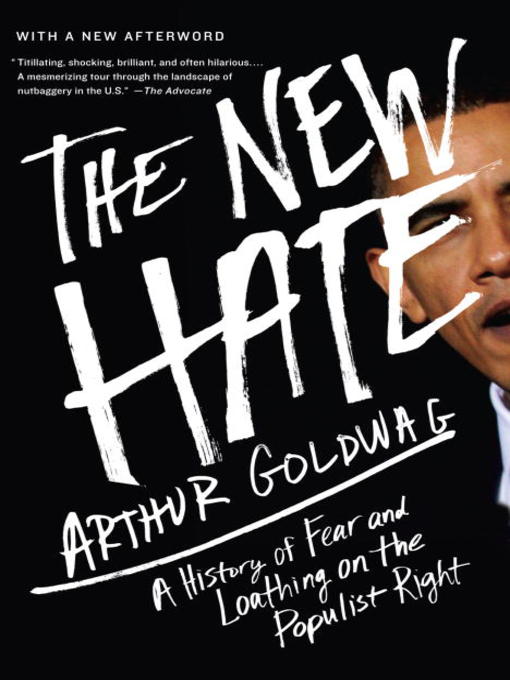From “Birthers” who claim that Barack Obama was not born in the United States to counter-jihadists who believe that the Constitution is in imminent danger of being replaced with Sharia law, conspiratorial beliefs have become an increasingly common feature of our public discourse. In this deeply researched, fascinating exploration of the ideas and rhetoric that have animated extreme, mostly right-wing movements throughout American history, Arthur Goldwag reveals the disturbing pattern of fear-mongering and demagoguery that runs through the American grain.
The New Hate takes readers on a surprising, often shocking, sometimes bizarrely amusing tour through the swamps of nativism, racism, and paranoid speculations about money that have long thrived on the American fringe. Goldwag shows us the parallels between the hysteria about the Illuminati that wracked the new American Republic in the 1790s and the McCarthyism that roiled the 1950s, and he discusses the similarities between the anti–New Deal forces of the 1930s and the Tea Party movement today. He traces Henry Ford’s anti-Semitism and the John Birch Society’s “Insiders” back to the notorious Protocols of the Elders of Zion, and he relates white supremacist nightmares about racial pollution to nineteenth-century fears of papal plots.
“The most salient feature of what I have come to call the New Hate,” Goldwag writes, “is its sameness across time and space. The most depressing thing about the demagogues who tirelessly exploit it—in pamphlets and books and partisan newspapers two centuries ago, on Web sites, electronic social networks, and twenty-four-hour cable news today—is how much alike they all turn out to be.”
- Available now
- New eBook additions
- New kids additions
- New teen additions
- Most popular
- Try something different
- See all ebooks collections
- Available now
- New audiobook additions
- New kids audiobook additions
- New teen additions
- Try something different
- See all audiobooks collections
- Let's Get Cooking!
- News and Politics
- Celebrity Magazines
- Popular Magazines
- See all magazines collections



